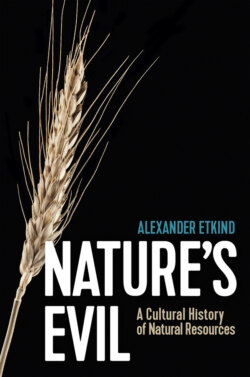Читать книгу Nature's Evil - Alexander Etkind - Страница 31
Vegetarianism
ОглавлениеOne particular part of the story of meat is abstinence from it. Jews refrained only from eating pork, but the Apostle Paul wrote to the Romans that Jesus advised against eating any meat. St Jerome thought that before the Flood people neither ate meat nor drank wine. During the Renaissance, vegetarianism was linked to the Pythagorean tradition, which promised dominance over nature and the immortality of the body. Following this, many freemasons abstained from meat. In the eighteenth century the most successful proponent of abstinence from meat-eating was the Italian doctor Antonio Cocchi, a fellow of the Royal Society and founder of the first Masonic lodge in Florence. Drawing on the experience of doctors and travellers, he was the first to show that scurvy was caused by sailors’ rations, which consisted of salted meat. The conquering of scurvy was one of the crowning achievements of the Enlightenment.
In the British Empire, vegetarianism was connected with Hinduism, which was often promoted by people returning from the colonies. John Holwell, a governor of Bengal, was a vegetarian. In retirement, he promoted vegetarianism and tried to prove that Hinduism was the root of Christianity.6 Such vegetarianism was a manifestation of positive Orientalism, in which the centre – London and Manchester – imitated the periphery – India. In Europe, vegetarianism was considered an English fad. The first lifestyle movement, vegetarianism filtered down from the elite, captivating the middle classes and absorbing other new ideas. As one London newspaper wrote in 1878, ‘As a matter of fact, vegetarianism does seem somehow or other to be correlated to all sorts of strange “isms” … A vegetable solus eater is pretty sure to hold new and strange views on political economy, to be a member of the Society for Psychical Research, to dress in all wool clothing, to abjure the razor, or to wear soft and unsightly hats.’7 The Russians and Americans connected vegetarianism with the simple life, the rejection of luxury, and the love of nature. The popular sects – the Russian Khlysts, the American Shakers – didn’t eat meat. Henry Thoreau and Lev Tolstoy produced similar arguments in support of vegetarianism: meat was a symbol of luxury, lust and inequality between people. Vegetarianism was the subject of ideological battles and also a personal choice. There were notable vegetarians on both sides of the divide between good and evil – Shelley and Wagner, Gandhi and Hitler.
This debate gained another dimension in the twenty-first century. Meat and dairy products provide just 18 per cent of the global consumption of food calories, but their production creates 60 per cent of carbon emissions from agriculture. As a result, farm animals produce more emissions than come from the total of all kinds of transportation. Beef, for example, contributes only 3 per cent of the calories in the American diet, but emissions from cattle make up half of all agricultural emissions in the USA. Using up a great deal of oil and land, beef should be expensive, but agricultural subsidies halve its price in the consumer market. Governments are directly financing one of the main sources of pollution on the planet. If humanity gives up meat and milk, it will liberate three-quarters of the land currently taken up by agriculture. More water would become available as well: worldwide, cattle are responsible for a third of water consumption and more than half of water pollution.8 The only chance of feeding the growing world population while at the same time reducing emissions is to make radical cuts (up to 40 per cent) in cattle farming in the countries of the Global North. This is a realistic goal: during the last fifty years the consumption of beef has already reduced by a third, in part thanks to the propaganda of vegetarian ‘cranks’.
Scientists don’t believe that animal protein has any advantages over plant protein, while its disadvantages are many: to produce a kilogram of protein from peas takes fifty times less land and creates twelve times fewer emissions than to produce it from cattle. If you become exclusively vegetarian, you will cut your personal contribution to the pollution of the planet more than if you give up flying or change your diesel car for an electric model. The transition to a vegan diet by all of humankind will not be cheap to achieve; but the world pays out half a trillion dollars a year in agricultural subsidies, and political will could employ this money for rebuilding agriculture. Scientists are proposing to do this gradually, by redirecting subsidies and introducing taxes on carbon emissions. Meat and milk will be treated like tobacco and alcohol, which are taxed at an especially high rate. Supermarket shelves are filled with plant alternatives to milk. Vegans are for the most part young people with university degrees, and it isn’t clear how veganism can turn into a mass movement. Getting people hooked on sugar, tea or opium was easier than getting them used to non-dairy milk and fresh vegetables (see chapter 4).
